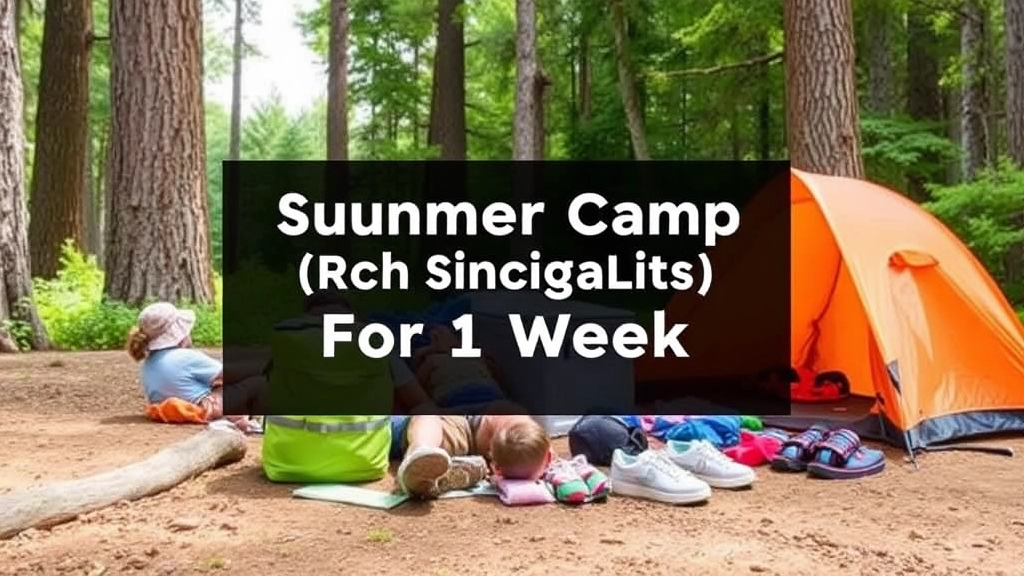Heading to Summer Camp
Heading to summer camp for a week and unsure what to pack? I’ve been there, and trust me, the right packing can make or break your experience. From essential clothing and toiletries to special gear for activities, this guide covers everything you need to ensure a smooth and enjoyable camp adventure.
Must-Have Items
We’ll dive into must-have items like bedding, footwear, and sun protection, plus snacks and hydration tips to keep your energy up. I’ll also share what to avoid packing and offer efficient packing strategies. Let’s make sure you’re fully prepared for an unforgettable summer camp experience!
Essential Clothing for a One-Week Summer Camp
Alright, so you’re gearing up for a one-week summer camp and wondering what clothes to pack. Trust me, I’ve been there and I know the struggle is real. You want to be prepared for everything from scorching days to chilly nights, without overpacking. Let’s break it down so you can get it right.
What Should You Pack?
First off, think about the climate. Summer camps usually mean warm days and cooler nights. So, here’s what you need:
- T-Shirts and Tank Tops: Pack enough for each day. You’ll probably get sweaty, dirty, or both.
- Shorts: At least 3-4 pairs. Go for breathable fabrics.
- Long Pants: 1-2 pairs for cooler evenings or hikes through brushy areas.
- Light Jacket or Hoodie: Essential for those chilly nights around the campfire.
- Swimwear: At least two sets if you’re going to be swimming a lot. No one likes putting on a wet swimsuit.
- Underwear and Socks: Pack enough for each day plus a couple of extras. Trust me, you’ll thank yourself.
- Pyjamas: Something comfortable for sleeping.
- Hat: A must for sun protection. A wide-brimmed hat works best.
Real Talk: What Are Your Worries?
You might be thinking, “What if I pack too much or too little?” Or, “What if I forget something important?” Relax. The key is balance. You don’t need to bring your whole wardrobe, but you also don’t want to run out of clean clothes halfway through the week.
Pro Tips for Packing
- Mix and Match: Choose clothing items that can be easily mixed and matched. This way, you can create multiple outfits without overpacking.
- Layering: Think layers. It’s easier to add or remove layers as the temperature changes.
- Quick-Dry Fabrics: Opt for materials that dry quickly. This is especially useful if you get rained on or decide to wash something mid-week.
- Comfort Over Style: You’re at camp, not a fashion show. Prioritise comfort and practicality.
Example from My Own Experience
I remember my first summer camp. I packed like I was going on a month-long expedition. Half the stuff stayed in my bag the entire week. What I really needed were the basics: comfy clothes that could handle a bit of dirt and sweat, and a few extras for those unexpected moments.
Further Reading
For more tips on what to bring and how to prepare, check out our guide on summer camp clothing essentials. If you’re still deciding on the perfect camp, our list of affordable summer camps near you might help you find the best option for your budget.
Toiletries and Personal Hygiene Essentials
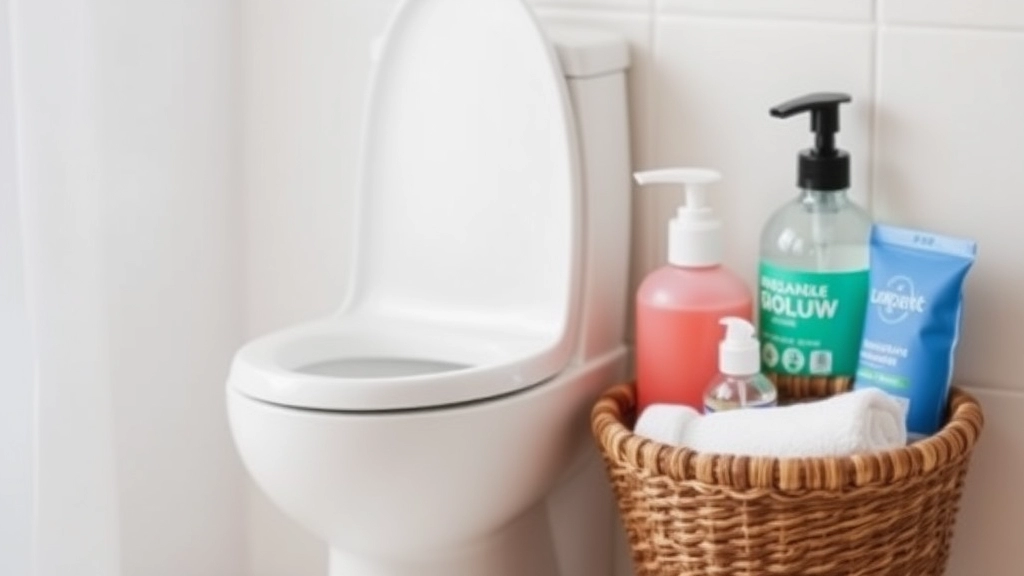
Alright, let’s talk about the nitty-gritty: toiletries and personal hygiene essentials.
You don’t want to be the one who forgot their toothbrush, right?
Here’s what you need:
1. Toothbrush and Toothpaste
- Keep those pearly whites clean.
- A travel-sized toothpaste works great.
2. Soap and Shampoo
- A bar of soap is less likely to spill.
- Travel-sized shampoo is your friend.
3. Deodorant
- Trust me, you’ll need it.
- Go for something long-lasting.
4. Hairbrush or Comb
- No one likes tangled hair.
- Compact versions save space.
5. Sunscreen
- SPF 30 or higher.
- Reapply every couple of hours.
6. Bug Spray
- Mosquitoes are no joke.
- DEET or natural repellents, your call.
7. Feminine Hygiene Products
- Be prepared, even if you’re not expecting it.
- Tampons, pads, whatever you prefer.
8. Hand Sanitiser
- Campsites can be germy.
- Travel-sized bottles are perfect.
9. Towel
- Quick-dry towels are a lifesaver.
- They pack small and dry fast.
10. Lip Balm
- Sunburnt lips are the worst.
- SPF lip balm is a bonus.
11. Razor
- If you shave, bring it.
- Disposable ones work well.
12. Nail Clippers
- You never know when you’ll need them.
- Small and easy to pack.
Real Talk: What You Might Forget
Ever been halfway through a camp week and realised you forgot something crucial?
Here’s a list of often-forgotten items:
- Floss: Your dentist will thank you.
- Face Wash: Soap doesn’t cut it for your face.
- Moisturiser: The sun can dry you out.
- Mirror: A small one for quick checks.
Pro Tips for Packing Toiletries
- Use a Toiletry Bag: Keeps everything organised.
- Label Your Stuff: Especially if you’re sharing a cabin.
- Mini Bottles: Save space and weight.
- Double Up: Some items can do double duty (like soap for body and face).
Bedding and Sleep Gear Recommendations
Alright, let’s talk about something we all stress over before heading to a one-week summer campâbedding and sleep gear. If you’re anything like me, you want to make sure you get a good night’s sleep even when you’re out in the wild. So, let’s break down what you need to bring to make sure you’re not tossing and turning all night.
Why Bedding and Sleep Gear Matter
First off, think about the last time you had a lousy night’s sleep. It messes up your whole day, right? Now imagine that happening at camp when you’re supposed to be having fun. Not cool. Proper bedding and sleep gear can make or break your camp experience. So, let’s get it right.
Must-Have Bedding Items
Here’s a list of essentials you need to pack:
- Sleeping Bag: Go for a lightweight, summer-friendly sleeping bag. Make sure it’s rated for the temperatures you’ll be facing. You don’t want to be sweating or shivering all night.
- Sleeping Pad or Air Mattress: Trust me, the ground is not as comfy as it looks. A sleeping pad or air mattress adds that extra layer of comfort and insulation.
- Pillow: Don’t underestimate the power of a good pillow. Whether you bring a small travel pillow or a compressible camping pillow, your neck will thank you.
- Blanket: A lightweight blanket can be a lifesaver for those cooler nights or for added comfort.
Optional but Nice-to-Have
- Camping Cot: If you have the space and don’t mind the extra weight, a camping cot can elevate your sleep gameâliterally.
- Mosquito Net: If you’re camping in an area with a lot of bugs, a mosquito net can save you from those annoying bites.
- Earplugs and Eye Mask: Campsites can be noisy and bright. Earplugs and an eye mask can help you catch those Z’s without interruptions.
Real Talk: What Works and What Doesn’t
I remember my first camping trip. I thought a thin yoga mat would work as a sleeping pad. Big mistake. I woke up with a sore back and grumpy mood. Don’t be like me. Invest in a good sleeping pad or air mattress.
Pro Tips for Bedding
- Test Your Gear: Before you head out, set up your sleeping gear at home. Make sure everything works and is comfortable.
- Pack Smart: Roll up your sleeping bag and secure it with straps. Compress your sleeping pad to save space.
- Weather Check: Always check the weather forecast. Adjust your bedding accordinglyâextra blankets for cold nights or lighter gear for warm evenings.
Looking for more tips on making your camp experience enjoyable? Check out our Summer Camping Gear Tips and Fun Activities for comprehensive advice. And if you’re still considering which camp to join, our guide to free summer camps can help you find the perfect fit without breaking the bank.
Footwear for Camp Activities and Weather Conditions
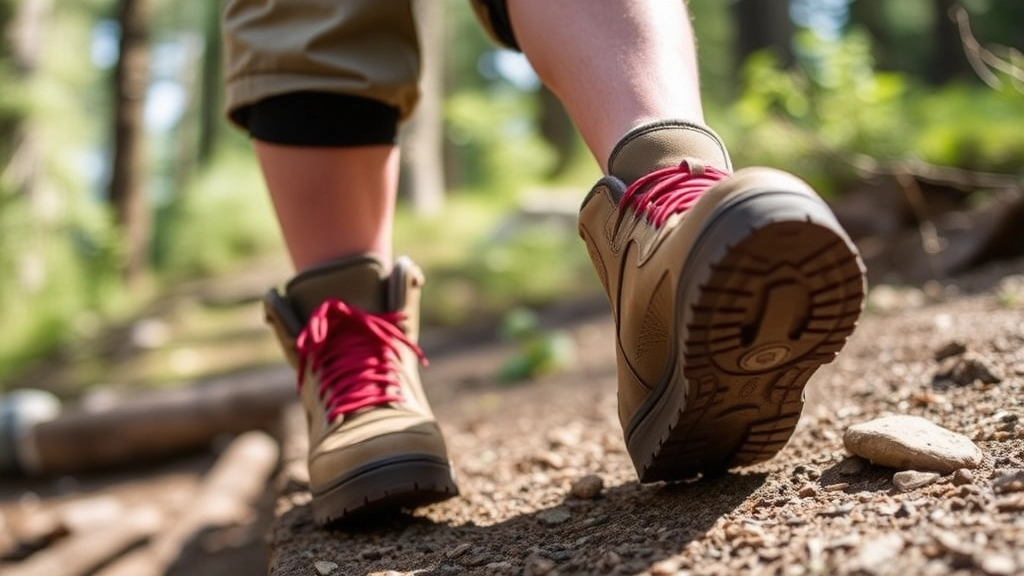
Ever wondered what shoes to pack for a summer camp?
Trust me, it’s crucial.
You don’t want to be the one with soggy trainers or blisters the size of a 50p coin.
Camp Footwear Basics
First off, think about the activities.
Are you hiking, swimming, or just chilling by the campfire?
Each calls for different footwear.
Hiking Boots
- Sturdy and Comfortable: Your feet will thank you.
- Waterproof: Mud and puddles are no joke.
- Good Grip: Essential for those slippery trails.
Trainers
- Versatile: Great for general activities.
- Breathable: Keeps your feet cool.
- Quick-Drying: Perfect for unexpected rain.
Sandals
- Lightweight: Easy to slip on and off.
- Ideal for Water Activities: Quick-dry material.
- Comfortable: Great for lounging around.
Wellies
- Rainy Days: Keep those feet dry.
- Muddy Terrain: No slipping and sliding here.
Real Talk: My Camp Experience
I once packed only trainers.
Big mistake.
After a rainy day, I was squelching around with soggy socks.
Lesson learned: pack for any weather.
Why Footwear Matters
- Comfort: Avoid blisters and sore feet.
- Safety: Good grip prevents falls.
- Versatility: Be ready for any activity.
So, what shoes are you packing for camp?
Make sure they’re up for the adventure.
Footwear for Camp Activities is a game-changer.
Don’t skimp on this.
Your feet will thank you.
Protection Against the Elements: Sun and Rain Gear
Alright, you’re gearing up for a one-week summer camp and wondering, âHow do I make sure I don’t get roasted by the sun or drenched by the rain?â Trust me, I’ve been there, and I’m here to break it down for you.
Sun Protection: Stay Cool and Safe
First off, let’s tackle the sun. Summer camps mean loads of outdoor activities, and the last thing you want is to spend your nights nursing a sunburn. Here’s what you need:
- Sunscreen: Go for SPF 30 or higher. Apply it generously, and don’t forget to reapply every two hours, especially after swimming or sweating.
- Hat: A wide-brimmed hat is your best friend. It keeps the sun off your face, neck, and ears.
- Sunglasses: Protect those peepers with UV-blocking shades. Trust me, your eyes will thank you.
- Lightweight Clothing: Opt for long sleeves and long pants made from breathable fabric. Light colours reflect the sun’s rays and keep you cooler.
- Lip Balm with SPF: Don’t overlook your lipsâthey can get sunburned too.
Rain Gear: Stay Dry and Comfy
Now, let’s talk rain. Weather can be unpredictable, and a sudden downpour can turn your camp experience into a soggy mess. Here’s how to stay dry:
- Waterproof Jacket: A good waterproof jacket with a hood is a must. Look for something lightweight and breathable.
- Poncho: A poncho is a great backup. It’s easy to pack and can cover you and your backpack.
- Waterproof Boots: Wet feet are the worst. Waterproof boots or shoes keep your feet dry and comfortable.
- Quick-Dry Clothing: Invest in quick-dry shirts and pants. They’ll dry faster if you get caught in the rain.
- Dry Bag: Keep your essentials like phone, wallet, and a change of clothes in a dry bag. You’ll be grateful when your stuff stays dry.
Real Talk: Stories from the Trail
I remember this one time at camp, we were hit by a surprise thunderstorm. Those of us with good rain gear were still able to enjoy the day, while others were stuck in their tents, miserable and soaked. Lesson learned: always be prepared for the unexpected.
Quick Tips and Tricks
- Layer Up: Weather can change quickly. Layering lets you add or remove clothing as needed.
- Hydrate: Sun or rain, staying hydrated is key. Always have a water bottle handy.
- Check the Forecast: Keep an eye on the weather forecast. It helps you pack smart and stay ahead of the game.
For more tips on how to make the most of your summer camp experience, check out our Ultimate Guide to Summer Camps with Pools and discover the benefits of STEM Summer Camps.
Snacks and Hydration: What’s Safe and Practical to Bring
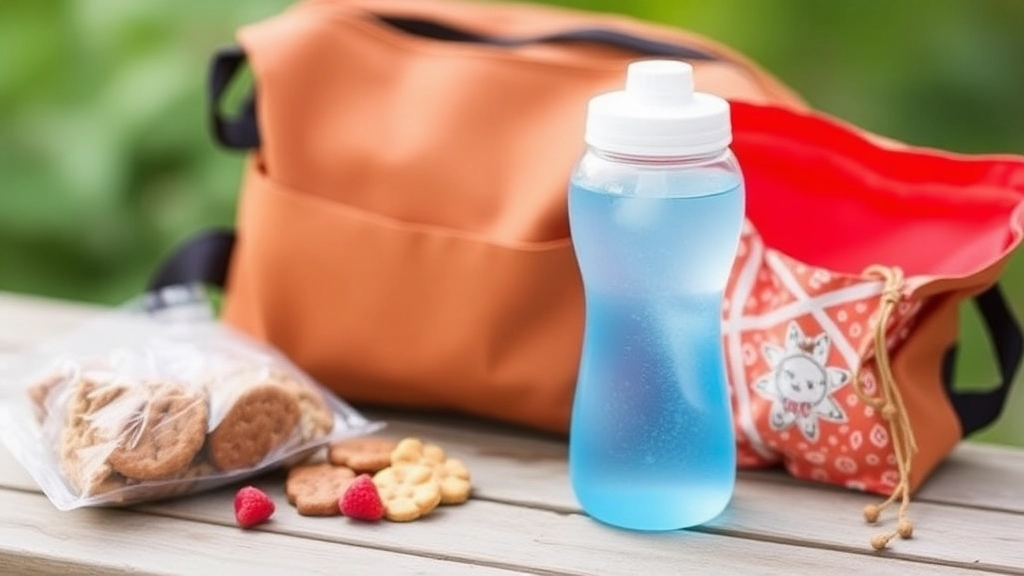
Wondering what snacks and drinks to pack for a one-week summer camp?
You’re not alone.
Snacks and hydration are crucial for keeping your energy up and staying hydrated during camp activities.
But what’s safe and practical to bring?
Let’s dive in.
First off, snacks.
You want something that’s easy to carry, non-perishable, and nutritious.
Here’s a quick list:
- Granola bars: Lightweight, filling, and packed with energy.
- Dried fruit: Sweet, nutritious, and won’t spoil.
- Nuts and seeds: High in protein and healthy fats.
- Trail mix: A mix of nuts, seeds, and dried fruits.
- Crackers: Great for a quick munch.
- Jerky: Protein-packed and easy to store.
Avoid anything that needs refrigeration.
Chocolate can melt, so it’s better to skip it.
Now, let’s talk hydration.
Keeping hydrated is non-negotiable.
Here’s what you need:
- Reusable water bottle: Preferably insulated to keep your water cool.
- Hydration packs: Great for hikes and long activities.
- Electrolyte tablets: Handy for replenishing lost minerals.
Pro Tip: Avoid sugary drinks. They can dehydrate you more.
Real Talk: Imagine being in the middle of a hike and running out of water. Not fun, right?
Stay ahead by packing enough hydration gear.
Quick Story: Last summer, I packed a mix of nuts, dried fruit, and a hydration pack for a week-long camp. Not only did it keep me energised, but I also avoided the hassle of spoiled snacks.
What to Avoid:
- Perishable items
- Sugary snacks and drinks
- Anything that melts easily
Fun and Comfort Items to Make Camp More Enjoyable
Alright, let’s talk about what really makes a summer camp awesomeâthose fun and comfort items that turn a good time into a great one. I mean, who doesn’t want to make their camp experience unforgettable, right? So, what should you pack to keep the fun rolling and the comfort levels high?
Why Fun and Comfort Matter
First off, let’s address the elephant in the room: camp can be a bit daunting. New place, new people, new activities. It’s natural to feel a bit out of your comfort zone. But guess what? Packing the right stuff can make all the difference. Think about itâhaving a few of your favourite things can make you feel more at home and help you enjoy the experience to the fullest.
Must-Have Fun Items
- Games and Cards: Whether it’s a deck of cards or a travel-sized board game, these are lifesavers for downtime. Trust me, you’ll thank yourself when it rains, and everyone’s stuck indoors.
- Books and Magazines: Perfect for those quiet moments when you need a break from all the action. Pick something light and fun to read.
- Musical Instruments: If you play the guitar, ukulele, or even a harmonica, bring it along. Campfires and sing-alongs are a camp staple.
- Sports Gear: A frisbee, football, or even a kite can provide hours of entertainment. Plus, it’s a great way to make new friends.
Comfort Essentials
- Favourite Pillow and Blanket: Camp beds can be a bit rough, so bringing your own pillow and a cosy blanket can make a world of difference.
- Comfortable Clothing: Pack a few extra comfy outfits for lounging around. Think soft tees, joggers, and hoodies.
- Personal Mementos: A small photo album or a favourite stuffed animal can provide comfort when you’re feeling homesick.
- Earplugs and Eye Mask: Camps can be noisy, and not everyone goes to bed at the same time. These can help you get a good night’s sleep.
Real Talk: What Not to Forget
- Journal and Pen: Camps are full of memorable moments. Jotting them down can be a great way to remember your experience and reflect on it later.
- Portable Charger: Keeping your phone charged is crucial, especially if you’re using it to take photos or stay in touch with family.
- Reusable Water Bottle: Staying hydrated is key, and having your own bottle makes it easier.
Personal Stories
I remember my first summer camp. I packed all the basics but forgot my favourite pillow. Big mistake. The camp pillow was like a rock and I barely slept the first night. The next year, I remembered to bring it and slept like a baby. Also, bringing a deck of cards was a game-changer. It broke the ice with my cabin mates and we ended up playing every night.
Final Thoughts
Packing the right fun and comfort items can elevate your camp experience from good to legendary. Don’t underestimate the power of a favourite book or a cosy blanket. These little things can make a huge difference. So, pack smart and enjoy every moment of your summer camp adventure!
Special Gear for Activities (Swimming, Hiking, etc.)
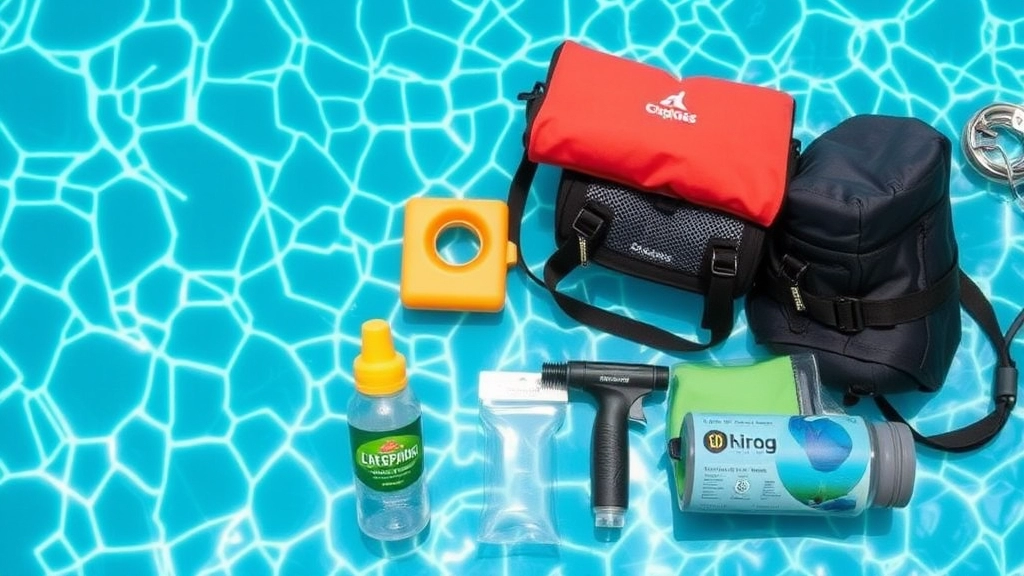
What gear should you pack for camp activities?
You’re heading to a summer camp, and you want to make sure you’ve got everything you need for all the fun activities lined up. But what exactly do you need? Let’s break it down.
Swimming Gear
- Swimsuits: Pack at least two. One can dry while you use the other.
- Towels: Quick-dry towels are lifesavers.
- Goggles: If you’re into underwater exploration.
- Swim Cap: Great for keeping hair out of your face.
- Flip Flops: For walking to and from the pool or lake.
Hiking Gear
Hiking can be a blast, but only if you’re prepared. Here’s what you need:
- Sturdy Shoes: Think hiking boots or trail shoes.
- Socks: Wool or synthetic to keep your feet dry.
- Backpack: Small and lightweight, but big enough for essentials.
- Water Bottle: Hydration is key.
- Sun Protection: Hat, sunglasses, and sunscreen.
- Insect Repellent: Trust me, you’ll be glad you packed this.
Water Sports
Planning on kayaking or paddleboarding? Don’t forget:
- Life Jacket: Safety first.
- Water Shoes: Protect your feet from sharp rocks.
- Dry Bag: Keep your valuables safe and dry.
Team Sports
If your camp offers sports like football or volleyball, consider these:
- Sports Shoes: Trainers with good grip.
- Comfortable Clothing: Breathable and moisture-wicking.
- Protective Gear: Shin guards, knee pads, etc.
Night Activities
Yes, campfires and stargazing are a thing. Here’s what you’ll need:
- Headlamp: Hands-free lighting.
- Warm Clothing: Even summer nights can get chilly.
- Blanket: For extra comfort.
Adventure Activities
Zip-lining or rock climbing? Then pack:
- Gloves: Protect your hands.
- Helmet: If it’s not provided.
- Comfortable Clothing: Flexible and durable.
Items to Avoid: What Not to Pack for Camp
Alright, let’s get real for a minute. You’re gearing up for a one-week summer camp, and the excitement is off the charts. But waitâbefore you start shoving everything into your bag, let’s talk about what not to pack for camp. Trust me, overpacking or bringing the wrong stuff can turn your adventure into a hassle. So, let’s dive into the nitty-gritty of what to leave behind.
Electronics and Valuables
First things first, leave the expensive gadgets and jewellery at home. I get it, you want to capture every moment, but camp is about disconnecting and enjoying nature. Plus, losing or damaging your costly items can put a serious damper on your fun.
- Smartphones and Tablets: Many camps discourage or even ban these. Besides, you’re there to unplug.
- Jewellery: Even if it’s just a favourite necklace, it’s better off safe at home.
- Laptops: You won’t need them, and they’re a pain to keep safe.
Unnecessary Clothing
You don’t need to bring your entire wardrobe. Focus on packing versatile, comfortable clothing that you can mix and match. For more tips, check out our Summer Camp Clothing Essentials.
- Formal Wear: Leave the fancy dresses and suits at home.
- Excessive Outfits: Stick to the essentials. Think layers and items that can be worn more than once.
Food and Drinks
Most camps provide meals and snacks, so bringing your own stash can attract unwanted critters or even violate camp rules. For ideas on camp-friendly snacks, visit our Summer Camp Canteen Snacks Tips.
- Perishable Items: They’ll spoil quickly and attract bugs.
- Sugary Snacks: They can lead to sugar crashes and aren’t the best for sustained energy.
Weapons and Sharp Objects
This one’s a no-brainer, but it has to be said. Anything that could be considered a weapon or is unnecessarily sharp should stay at home.
- Pocket Knives: Unless specified by the camp for certain activities, leave them out.
- Fireworks: Fun? Yes. Safe? Absolutely not.
Excessive Toiletries
Keep it simple. The camp will likely have basic facilities, so you don’t need your entire beauty regimen.
- Full-Size Bottles: Opt for travel-sized versions of your essentials.
- Electric Appliances: Hairdryers, straightenersâcamp is about embracing the natural look.
Expensive Sports Equipment
Unless the camp specifies you need your own gear, it’s usually better to use what they provide.
- High-End Bicycles: Camps often have bikes for use.
- Specialised Sports Gear: If you’re not sure, call the camp to check what’s provided.
Stories and Examples
Take it from meâI once brought an entire suitcase full of “just in case” items to a camp. Half of it stayed in the bag the whole week. I learned the hard way that less is more. Another friend of mine brought her favourite earrings and lost one during a hike. It was a bummer that could’ve been avoided.
Quick Recap
Here’s a quick checklist of what to avoid:
Safety and Identification: Must-Have Documents and Medications
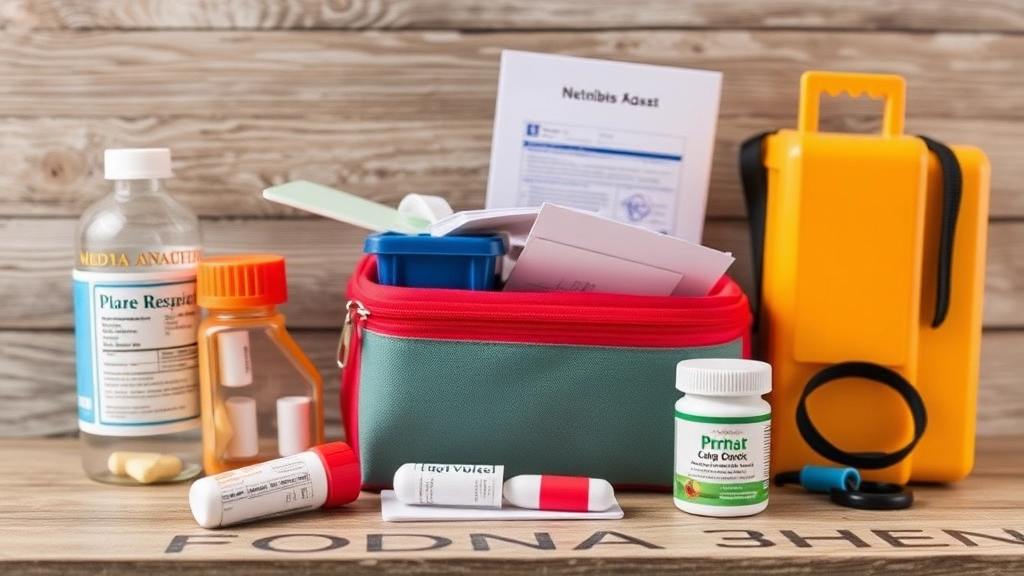
Ever worried about what could go wrong at camp?
Yeah, me too.
But let’s keep it simple and practical.
You need to have the right documents and medications sorted.
First things first, safety and identification are non-negotiable.
Must-Have Documents
- Camp Registration Papers: Keep a copy of your camp registration. Trust me, you don’t want to be that person holding up the line because you forgot it.
- Health Forms: Fill out any health forms the camp requires. This usually includes emergency contacts, allergies, and any medical conditions.
- Insurance Cards: Always bring your health insurance card. Better safe than sorry, right?
- ID: A photo ID is crucial. Even if you’re a kid, a school ID can come in handy.
Essential Medications
If you need daily meds, you can’t skip this part.
- Prescription Medications: Pack them in their original bottles. Label them clearly with your name and dosage instructions.
- Over-the-Counter Meds: Think basics like pain relievers, allergy meds, and anti-itch cream.
- First Aid Kit: A small one with band-aids, antiseptic wipes, and tweezers can save the day.
- Medical Alert Items: If you have severe allergies or conditions, wear a medical alert bracelet.
Pro Tips
- Double-Check: Make a list and check it twice. You don’t want to forget something crucial.
- Keep It Accessible: Store your documents and meds in a waterproof bag. Quick access is key.
- Inform Camp Staff: Let the camp staff know about any special medical needs. Communication is everything.
Real Talk
I remember this one time at camp, a mate of mine forgot his asthma inhaler.
We had to scramble to find a local pharmacy.
Not fun.
So, don’t be that person.
Efficient Packing Tips for One-Week Summer Camp Preparation
Worried about packing for camp?
You’re not alone.
Packing can feel like a puzzle.
But don’t stress.
Let’s break it down.
Start with a Plan
Why plan?
Because it saves you from last-minute chaos.
Make a checklist.
Essentials first:
- Clothes
- Toiletries
- Bedding
Use Packing Cubes
Ever heard of packing cubes?
They’re a game-changer.
Benefits:
- Organise by category
- Easy access
- Saves space
Roll, Don’t Fold
Why roll clothes?
It’s simple: more space and fewer wrinkles.
Keep It Light
Think you need everything?
Think again.
Ask yourself:
- Do I really need this?
- Will I use it every day?
Pack Multi-Use Items
Examples:
- A jacket that’s also a raincoat
- Shoes good for both hiking and casual wear
Ziplock Bags for Toiletries
Avoid spills.
Ziplock bags are your friend.
Bonus:
Use them for snacks too.
Label Everything
Why label?
Because things get lost.
Label:
- Clothes
- Bags
- Gear
Quick Tip: Leave Room for Souvenirs
You’ll probably bring something back.
Leave a bit of space for those memories.
Final Check
Before you zip up, do a final check.
Ask yourself:
- Do I have my essentials?
- Is everything in its place?
Stay Calm and Pack On
Packing doesn’t have to be stressful.
With these tips, you’re ready to conquer camp. For more ideas on what to bring, check out our Summer Camp Packing List.
And if you’re still deciding on a camp, explore our Ultimate Guide to Kids Summer Camps for great options.
FAQs: Summer Camp Packing List For 1 Week
What toiletries should I bring to a one-week summer camp?
You’ll need essential items like a toothbrush, toothpaste, soap, shampoo, deodorant, hairbrush, sunscreen, bug spray, feminine hygiene products, hand sanitiser, towel, lip balm, razor, and nail clippers. Don’t forget to pack items you might overlook, such as floss, face wash, moisturiser, and a small mirror.
What type of footwear is best for camp activities?
Depending on the activities, you’ll need a variety of footwear. Consider packing hiking boots, trainers, sandals, and wellies. Each type of shoe serves a different purpose, such as hiking, general activities, water activities, and rainy conditions.
What snacks and hydration items are practical to bring?
Opt for non-perishable, nutritious snacks like granola bars, dried fruit, nuts, seeds, trail mix, crackers, and jerky. For hydration, bring a reusable water bottle, hydration packs, and electrolyte tablets. Avoid sugary snacks and drinks, as well as anything that melts easily.
What special gear should I pack for camp activities?
Depending on the activities planned, you may need specific gear:
- Swimming: Swimsuits, quick-dry towels, goggles, swim cap, flip flops.
- Hiking: Sturdy shoes, socks, backpack, water bottle, sun protection, insect repellent.
- Water Sports: Life jacket, water shoes, dry bag.
- Team Sports: Sports shoes, comfortable clothing, protective gear.
- Night Activities: Headlamp, warm clothing, blanket.
- Adventure Activities: Gloves, helmet, comfortable clothing.
What documents and medications are necessary for camp?
Ensure you have your camp registration papers, health forms, insurance cards, and ID. For medications, bring prescription meds in their original bottles, over-the-counter meds like pain relievers and allergy meds, a small first aid kit, and medical alert items if needed.
Any pro tips for packing toiletries and other essentials?
Use a toiletry bag to keep everything organised, label your items, and opt for mini bottles to save space. Some items can do double duty, like using soap for both body and face. For medications and documents, double-check your list, keep them in a waterproof bag, and inform camp staff about any special medical needs.
Why is it important to pack the right footwear?
Packing the right footwear is crucial for comfort, safety, and versatility. Good shoes prevent blisters and sore feet, provide grip to avoid falls, and ensure you’re prepared for any activity.
What should I avoid bringing to camp?
Avoid perishable items, sugary snacks and drinks, and anything that melts easily, like chocolate. These items can spoil or create a mess, making your camp experience less enjoyable.
How can I stay hydrated during camp activities?
Bring a reusable water bottle, preferably insulated, hydration packs for long activities, and electrolyte tablets to replenish lost minerals. Avoid sugary drinks, as they can dehydrate you more.
References
-
Family Camping Checklist
-
Backpacking Gear Essentials
-
Camping Health and Safety Tips

